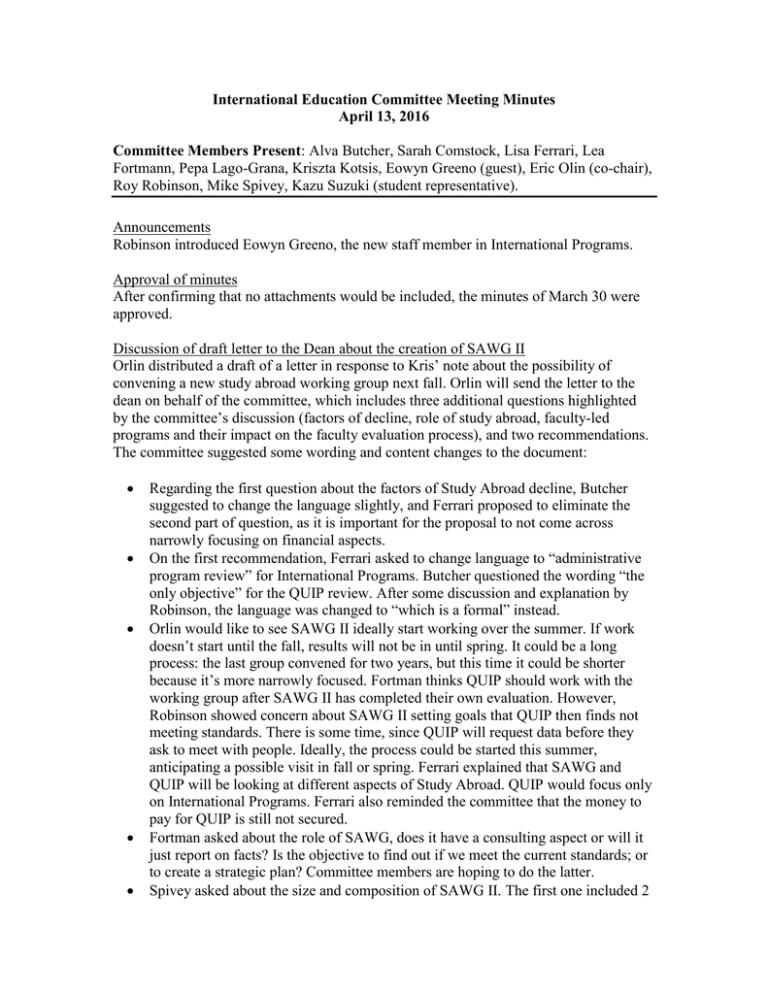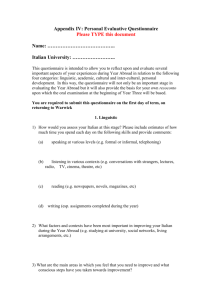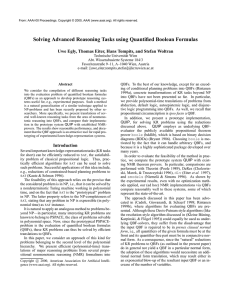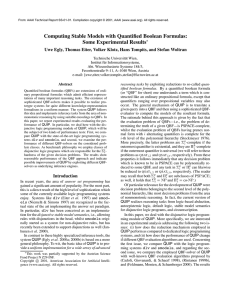International Education Committee Meeting Minutes April 13, 2016 Committee Members Present
advertisement

International Education Committee Meeting Minutes April 13, 2016 Committee Members Present: Alva Butcher, Sarah Comstock, Lisa Ferrari, Lea Fortmann, Pepa Lago-Grana, Kriszta Kotsis, Eowyn Greeno (guest), Eric Olin (co-chair), Roy Robinson, Mike Spivey, Kazu Suzuki (student representative). Announcements Robinson introduced Eowyn Greeno, the new staff member in International Programs. Approval of minutes After confirming that no attachments would be included, the minutes of March 30 were approved. Discussion of draft letter to the Dean about the creation of SAWG II Orlin distributed a draft of a letter in response to Kris’ note about the possibility of convening a new study abroad working group next fall. Orlin will send the letter to the dean on behalf of the committee, which includes three additional questions highlighted by the committee’s discussion (factors of decline, role of study abroad, faculty-led programs and their impact on the faculty evaluation process), and two recommendations. The committee suggested some wording and content changes to the document: Regarding the first question about the factors of Study Abroad decline, Butcher suggested to change the language slightly, and Ferrari proposed to eliminate the second part of question, as it is important for the proposal to not come across narrowly focusing on financial aspects. On the first recommendation, Ferrari asked to change language to “administrative program review” for International Programs. Butcher questioned the wording “the only objective” for the QUIP review. After some discussion and explanation by Robinson, the language was changed to “which is a formal” instead. Orlin would like to see SAWG II ideally start working over the summer. If work doesn’t start until the fall, results will not be in until spring. It could be a long process: the last group convened for two years, but this time it could be shorter because it’s more narrowly focused. Fortman thinks QUIP should work with the working group after SAWG II has completed their own evaluation. However, Robinson showed concern about SAWG II setting goals that QUIP then finds not meeting standards. There is some time, since QUIP will request data before they ask to meet with people. Ideally, the process could be started this summer, anticipating a possible visit in fall or spring. Ferrari explained that SAWG and QUIP will be looking at different aspects of Study Abroad. QUIP would focus only on International Programs. Ferrari also reminded the committee that the money to pay for QUIP is still not secured. Fortman asked about the role of SAWG, does it have a consulting aspect or will it just report on facts? Is the objective to find out if we meet the current standards; or to create a strategic plan? Committee members are hoping to do the latter. Spivey asked about the size and composition of SAWG II. The first one included 2 faculty members, the director of IP, the Associate Dean, and members of administrative offices (Registrar, Enrollment, Academic Advising), about 8 people total. For SAWG II, if student participation is desired, it should be mentioned in the letter. Butcher asked whether this discussion is going to be part of report to Senate, since the creation of SAWG has been an important part of the work of the committee this year. The group decided that including this letter as an attachment to the report is important. The letter will be attached for the Senate to review along with the report. Study Abroad Questionnaire Butcher and Lago reported on their work on the subcommittee charged with reviewing the Study Abroad Questionnaire, created to assess the learning outcomes for education abroad, and to be completed by returning students. The subcommittee reorganized many of the questions, grouping them in clearly distinct headings: Student information regarding fields of study and program choice, Academic Program (including courses and internship, and language proficiency), Program Administration (including Lodging and Meals options, and expenses). They also limited the number of open-ended questions, leaving the more open questions to the end of the questionnaire. The committee made some suggestions for improvement: Open-ended questions on academic matters were moved from the end of the questionnaire to the bottom of Section I: Academic Program Questions regarding personal expenses were changed to provide general information on accuracy of budget projection by the program provider rather than the individual experiences of particular students Discussion on whether the questionnaire should be anonymous led to asking for the student ID number rather than the name. Because filling out the questionnaire is required of all students who study abroad, it is important to make sure that students who haven’t completed it can be identified. Comstock proposed the use of Qualtrics, a survey tool used by Institutional Research, as a way to solve the problem without having to ask for personal information on the form itself. A revised version of the questionnaire is attached. The meeting was adjourned at 11:55 am Respectfully submitted, Pepa Lago Graña





